For Those With Inflammatory Disease, Relief May Come in the Form of Green Tea

"Hearst Magazines and Yahoo may earn commission or revenue on some items through these links."
Teas have all kinds of wonderful powers — they can help you fight off a cold and warm up on a rainy day. They can also play a key role in an anti-inflammatory lifestyle.
"Inflammation is a protective mechanism that your body employs to defend itself from infection and injury," explains Bonnie Taub-Dix, RDN, creator of BetterThanDieting.com and author of Read It Before You Eat It—Taking You from Label to Table. But when your immune system kicks into high gear even when there is nothing to fight off, that can cause chronic inflammation, which can could lead to certain diseases like diabetes, heart disease and rheumatoid arthritis, Taub-Dix adds.
One of the ways to fight inflammation is to pay careful attention to what you eat, avoiding foods that cause inflammation, such as fried foods, red meat, sugary sodas and trans fats, and to lean into eating more foods that have anti-inflammatory properties, such as fatty fish, fresh berries, leafy greens and olive oil.
Drinking tea can help, too, since tea leaves are rich in natural compounds called polyphenols, which protect the body from inflammation. A large study published last year in the Annals of Internal Medicine found that drinking two cups of tea a day is associated with a lower mortality rate when compared with drinking no tea at all (the effect was strongest for those who drink their tea straight, with no added milk or sugar.)
It's worth noting when you're stressed out, your body releases hormones that can trigger inflammation, and what could be more stress-reducing than settling under a blanket with a nice cup of tea in your favorite mug? "Tea provides warmth and comfort, like getting a hug," Taub-Dix says. "So that aspect has a benefit, too."
Below, we boil down the facts for you about eight of the best anti-inflammatory teas. But remember: While tea does have many great benefits, it is not a miracle worker, Taub-Dix cautions: "If your diet is filled with sugary, fatty or highly salted foods and you don't exercise and don’t get a proper amount of sleep, then that mug of tea is not going to be the answer for you."
Green Tea
Perhaps the type of tea most synonymous with wellness, green tea has excellent potential anti-inflammatory benefits, says Alyssa Pacheco, RD. “It's high in a polyphenol compound called catechins, including one particularly potent catechin called EGCG,” Pacheco says. “Research studies show that this is effective at reducing inflammation." Green tea is also linked to lowering the risk of cancer and heart disease, so sip away! However, green tea should be consumed in moderation.
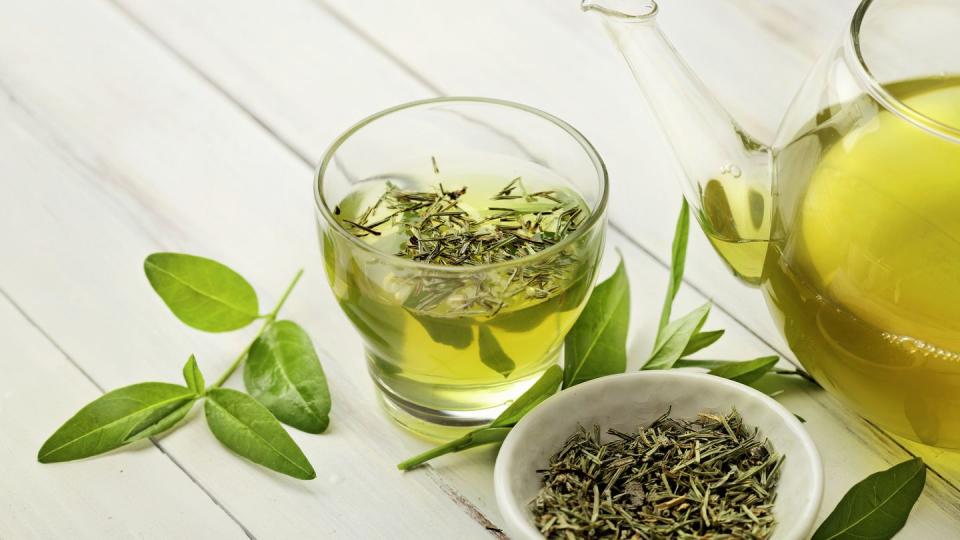
Turmeric Tea
Turmeric is best known as the flavorful spice that gives curry dishes their distinctive yellow-orange color — which is why teas made from turmeric are also known as “golden milk.” Most importantly, it contains curcumin, a potent anti-inflammatory compound.“Drinking turmeric tea can help reduce inflammation and may alleviate symptoms of inflammatory conditions like arthritis,” says nutritionist Mary Sabat, RDN. Don’t worry about wrangling the perfect amount of spice and boiling water; turmeric comes in ready-to-use tea bags.
SHOP OUR TOP PICK FOR TURMERIC TEA
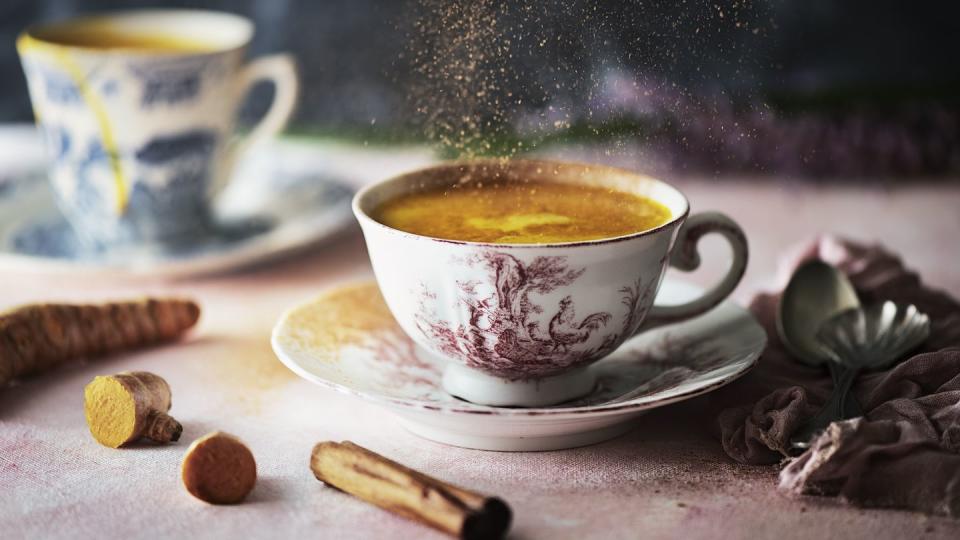
Black Tea
Black tea, which is made from the leaves of the camellia sinensis plant, is the most popular tea in the world. It also contains theaflavins, which "can improve blood vessel function, thereby promoting heart health,” says registered dietician and nutritionist Susan Schachter, RDN, who adds that the polyphenols in back tea may help lower the risk of developing chronic diseases. Keep in mind that black tea naturally contains caffeine, so best to drink it in the morning.
SHOP OUR TOP PICK FOR BLACK TEA
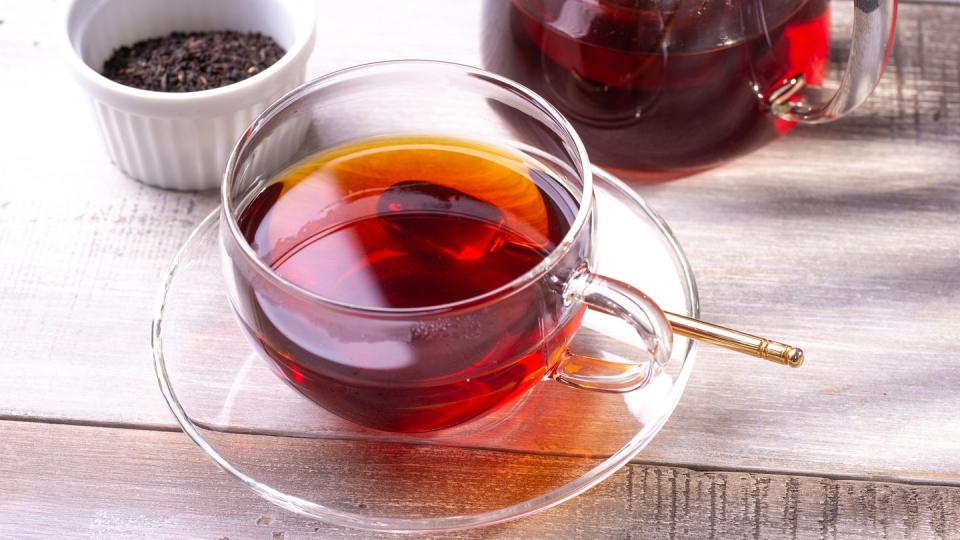
Ginger Tea
Ginger has been used in traditional medicine for centuries — it's a natural way to soothe an upset stomach, relieve nausea, and treat a cough. Studies have shown that ginger has antioxidant and anti-inflammatory properties, and may be helpful in preventing gastrointestinal, cardiovascular, respiratory, and neurological diseases. You can slice a ginger root and boil it in water with lemon, or simply brew a bag of ginger tea.
SHOP OUR TOP PICK FOR GINGER TEA
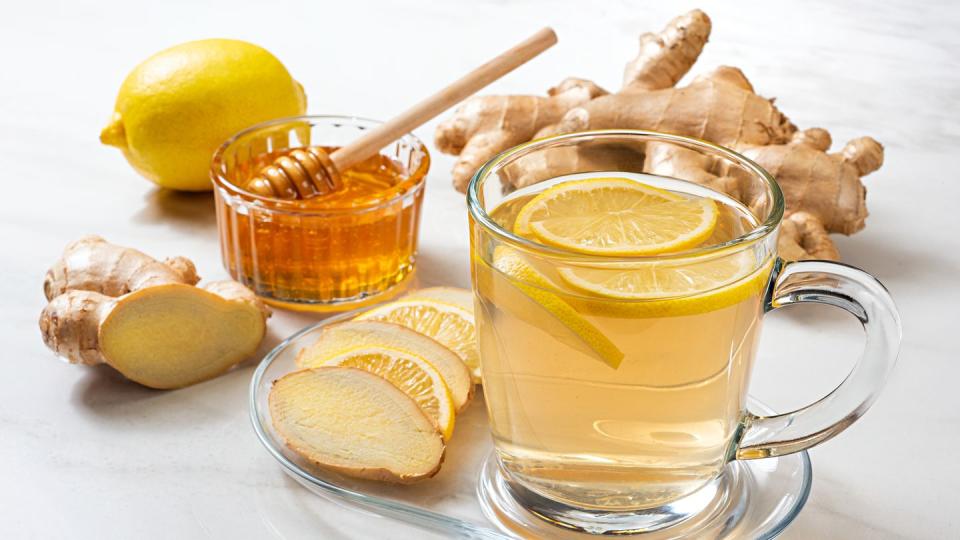
Oolong Tea
Like black tea, oolong tea comes from the leaves and buds of the Camellia sinensis plant, but has a lighter taste; it’s fermented for a longer time than green tea, but not as long as black tea. Sabat explains that “oolong tea can help to reduce inflammation because it is rich in polyphenols, [which] can help to alleviate pain and reduce swelling associated with inflammatory conditions like rheumatoid arthritis.”
SHOP OUR TOP PICK FOR OOLONG TEA
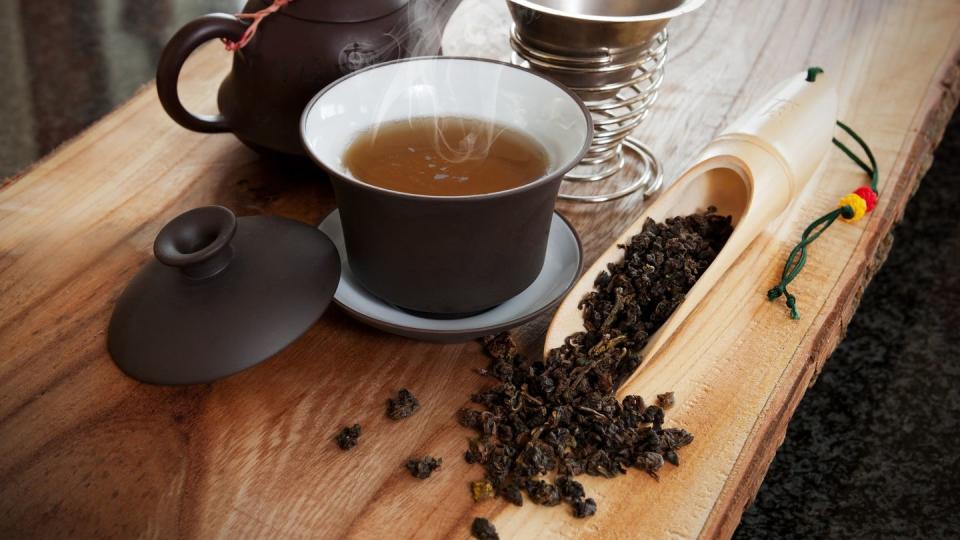
Chamomile Tea
“Chamomile” is synonymous with all things sleepy and cozy. And indeed, pouring a cup at night can help you ease into your bedtime routine as well as address inflammation. “Chamomile contains antioxidants and anti-inflammatory properties that can help calm inflammation, reduce digestive distress, and promote relaxation,” says Sabat.
SHOP OUR TOP PICK FOR CHAMOMILE TEA
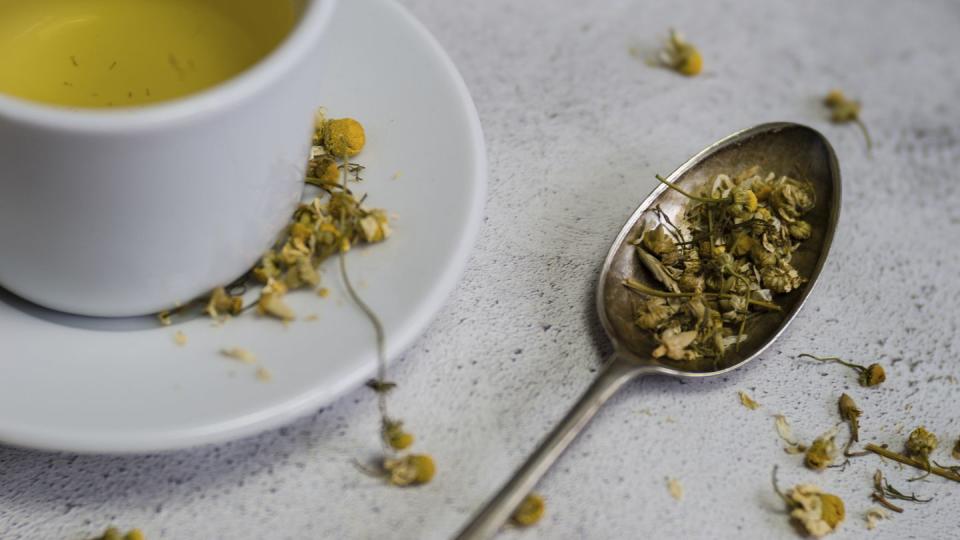
White Tea
With less caffeine than its counterpart, white tea packs a powerful punch despite its light color and mild taste. “Being the least processed, white tea retains a vast amount of its antioxidants,” says Schachter. “These antioxidants can neutralize harmful free radicals, potentially reducing the risk of chronic diseases.”
SHOP OUR TOP PICK FOR WHITE TEA
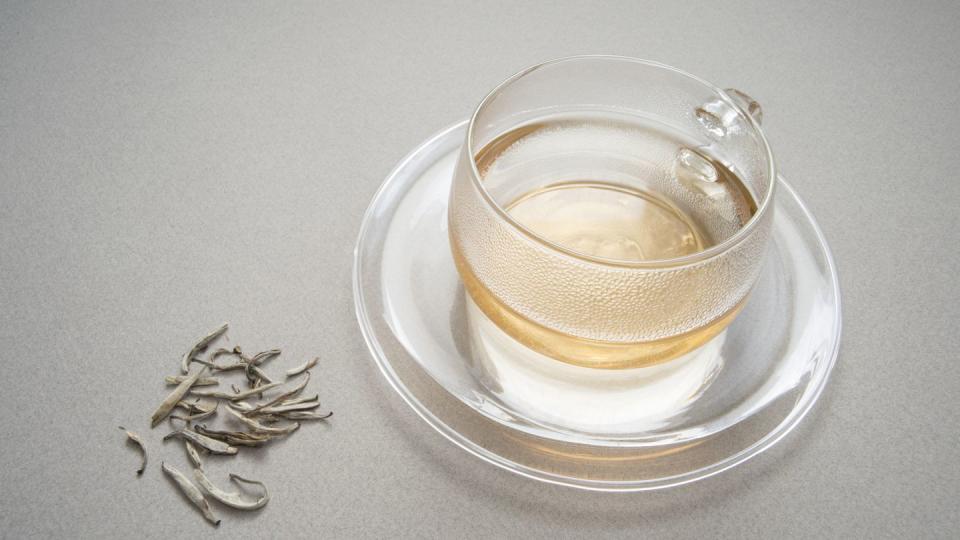
Rooibos Tea
Also known as red tea, rooibos (pronounced “ROY-boss”) has anti-inflammatory properties and “is also caffeine-free, making it a great choice for those sensitive to caffeine,” says Schacter, who adds that rooibos “also supports heart health by positively affecting blood pressure and cholesterol.” Rooibos is a herbal tea made from the leaves of Aspalathus linearis, which is usually found in South Africa and contains Aspalathin, which has potent antioxidant properties.
SHOP OUR TOP PICK FOR ROOIBOS TEA
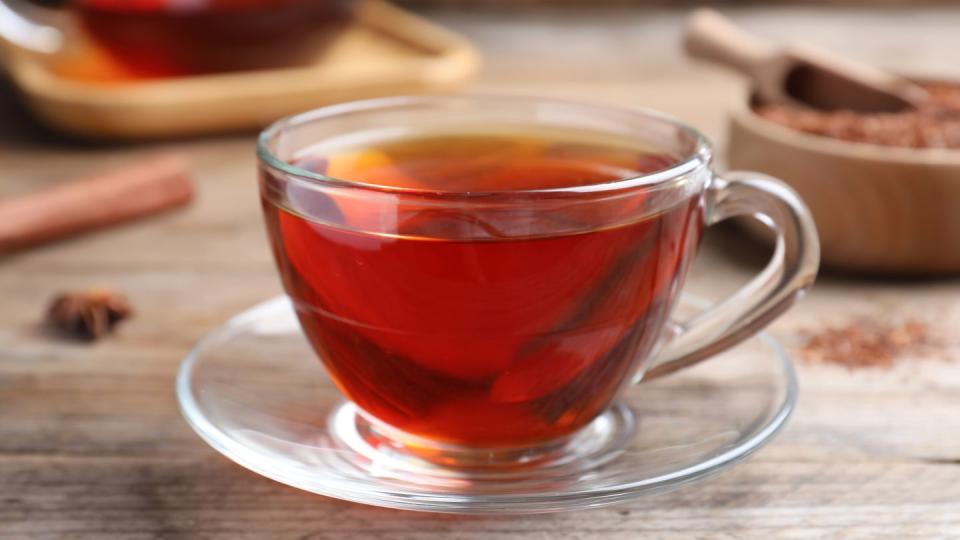
What's the best way to drink tea for inflammation?
Since added sugar is one of the key dietary triggers of inflammation, it's best to drink your tea unsweetened, and with just a hint of plant-based milk or nonfat milk if you like it the British way. Taub-Dix recommends mixing lemon with your tea, since the vitamin C from the citrus is an antioxidant. For a natural addition of sweetness, she also likes mixing in a slice of apple or orange—your cup will look as pretty as it tastes.

You Might Also Like

